Reflections of a Global Graduate
When I returned from a year in Asia, I was asked by a professor and mentor to compose a reflection piece of my time abroad. This is that piece, unedited and in its original form.
How it all Began #
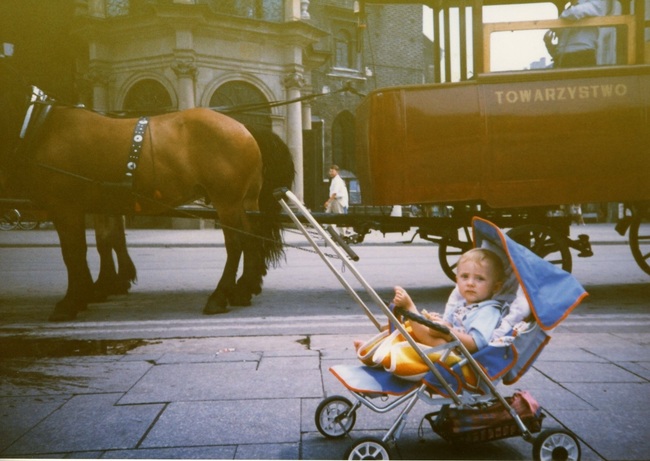
I’m a Polish immigrant raised in New Jersey, nurtured in New York, educated in Boston - yet my greatest aha moments came from a year in Asia. Reading a few intellectually dangerous books probably didn’t make me much fonder of expected ways of doing things. I’ve made troublemakers like Richard Branson and Tim Ferris my inspiration. I’m energized by the stories and philosophies of Paul Graham and TS Eliot and FDR. In college, my world was opened to the standards of American young adult development: the classes, social interactions, grades, and faux independence thrust on all college kids should teach us to learn, find jobs, work productively, find a partner, manage our finances to purchase a car, then home, then vacation packages and earn our long-awaited retirement. A middle-class retirement in the case of my generation, mind you, accounting for economic downturns, poor job prospects, and heavy student loans. Seemed like the next page of the story for a competent, competitive high schooler like me, although I wasn’t thinking it through then as deeply as I have since. I went for it in 2009, accepting a compelling offer from Northeastern University in International Business.

I’ve always felt predisposed to be lucky. If I bet that luck was something legitimate and intrinsic to myself and others rather than an abstraction of coincidences, I’d wager the bet would be in my favor. That’s how lucky I mean. Northeastern, then, was a lucky match. Our co-op program meant I’d get the much-sought internship opportunities, and then some: for 6 months, I worked as an Tech Account Manager at AOL, then again at Jiahua in Shenzhen, China to develop a new international education program. Work opened my eyes to my ability to be effective in the professional world regardless of age. The international business program - ranking in the top 10 nationally now that our class of 2014 has run through it - also went in my favor. We’d be abroad for 15 months, which thrilled someone who just couldn’t pull the trigger on a self-designed gap year before college. My final win came through the region I chose - at first for an unrequited love of Japan, and only second for the promise of the new Land of Opportunity in China. I conclude with East Asian Studies & Chinese - and with global purpose. Give it until 2030 but I think the Asia track has been validated.
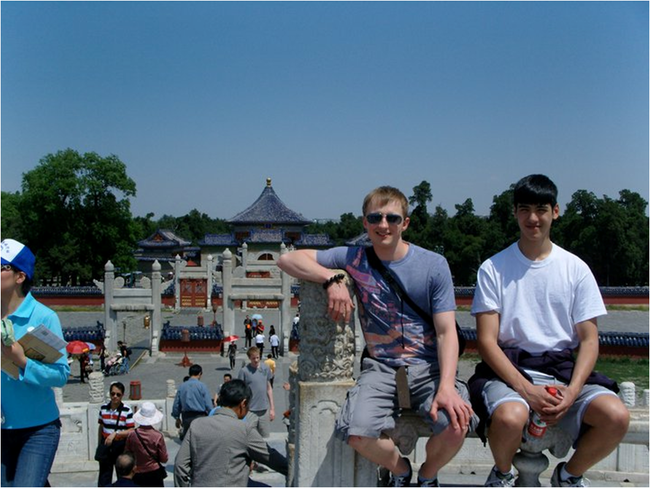
Of course, a lot didn’t mesh, too. Maybe it’s romantic but more likely it’s deluded: those lifechanging through-the-night discussions some of us (fine, I) came to college expecting didn’t happen as often as the movies show. More than the parties, which as an experience became stale quickly compared to travel, this is what I looked for from social circles at Northeastern, and I didn’t find it immediately. Honestly, I just didn’t look hard enough for it, falling into the early tragedy of friends by proximity rather than proficiency. Dorms are a great place to make friends, but it’s a grab bag. Some have remained great connections, but the best have been through the specific inner circles of ambitious people we’ve selectively cultivated. College is a great time to learn to pick your closest influencers - they’ll be shaping you, after all. It was more than people, it was also structure. The frustration of being forced to retread remedial concepts pissed me off enough to begin teaching myself things instead of studying for mundane finals. Useless assignments became opportunities to redesign: it is a shared greatness among professors to build assignments around passionate student suggestions rather than syllabus busywork. I tackled topics to serve multiple interests. Organizational Behavior reflections became blog posts I had been meaning to write. Localization projects became opportunities to fill gaps of regional understanding - of the Middle East, no less. We analyzed motivators of consumption at social ventures in Consumer Behavior, built a project for partners at TJX, but my best hack was organizing a 5-man team to produce $10k worth of research for my then startup team. If I wasn’t getting two problems with one stone, I was wasting ammunition. Hacking this system, I think, taught me more than playing within it. Finally, I also expected professors who would, as Socrates, pull from within me a better self through their shared wisdom. While many have been certainly wise, one of my most impactful professors yet remains in Hong Kong. I came to this conclusion: as professors research and publish, the student body parties, and administrators market and build facilities for our alumni benefactors - you are the only one holding yourself accountable for learning anything. Even thought they were rooted in dissatisfaction with the system, these discoveries wouldn’t have been possible without college.
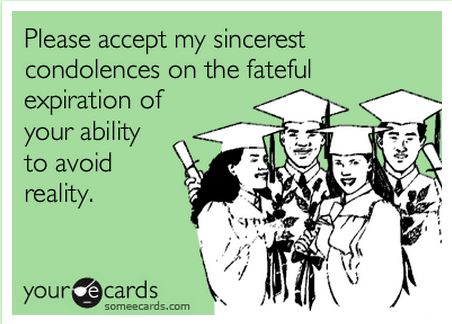
Ever since my trip and generally in speeding towards graduation, I’ve struggled with a question too few students consider during their time, and even fewer before they start writing applications: “Why did I go to college?” The consideration started during high school, with that focus on the “next step” in life, as if it was predetermined. Side projects aside, college was the pathway to that international job I wanted. Of course, I had at other points wanted to be a pilot, chef, journalist, diplomat, lawyer, psychologist – in some ways marketing seemed to be a practical application of at least some of those disparate forces. I was definitely thinking employee, not entrepreneur, at the time. Besides the promise of work, friends, and learning - all of which I feel I’ve now been able to independently outsource from the college experience - the reason that now stays with me is legacy.
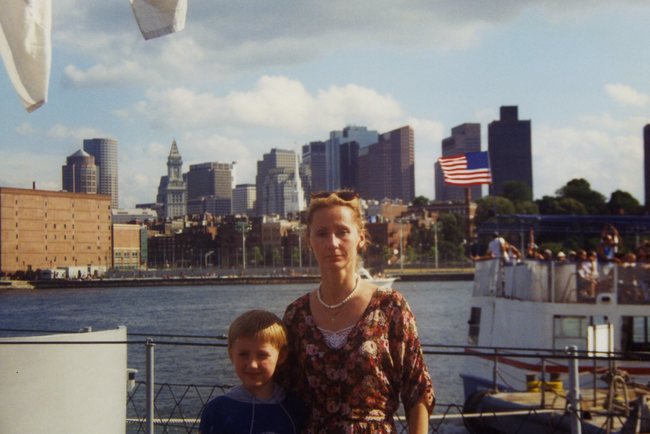
For my parents, success is to have immigrated to the United States, found fulfilling careers, and put their child through a good school. Magnificent job on their parts - but their achievements are not my own, and treading the well-worn path of the big-corp rat-race is starting to look more and more dreary to the most ambitious of our graduates. I have a new goal, abstracted but reflectively considered: to work through meaningful Big Problems by concepting, validating, and implementing creative open-ended solutions alongside a team of passionate experts constantly learning from one another to do the most possible good. I’m energized by audacious goals with powerful impacts, expanding my comfort zone through people and culture, and investing extra time into learning the important things schooling never covered. I strive to become an expert on empowering technologies, social engineering and human behavior, globalization, self-driven education, and entrepreneurship. I now study growth marketing, eCommerce, outsourcing, and front-end web design. I write about these adventures on the Survive Innovation blog. None of these skills have been necessarily inherent or deeply-covered in my major - but in bouncing around college and Asia, my vision has become clear. Here is how.
What I Experienced in Asia #
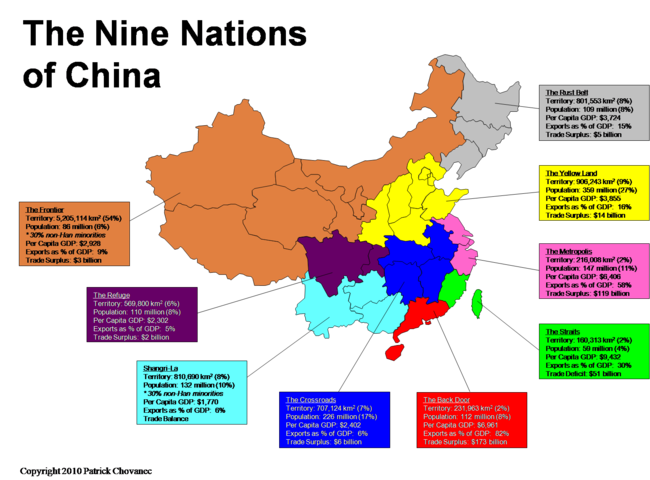
From as north as Beijing to as south as Shenzhen, China’s cities are wildly diverse. Patrick Chovanec beautifully segments the Wild Wild East into nine truly unique nations - a must-read. While I’ve explored what Chovanec calls the Metropolis, the Crossroads, and the Yellow Land, China for me has revolved most meaningfully around the Back Door: Shenzhen and Hong Kong. China’s loose interpretation of the law is best captured in a roughly translated quote: “the mountains are high and the emperor is far away.” It doesn’t get much further than south China. This is the true refuge of action-takers: historically, south China has been a place for commerce and experiments. From early exiles and smugglers, to rebels and renegades during British colonialism, to the entrepreneurs and emigrants of today, no place in China has attracted as tight a concentration of doers. What is China’s south? It is the hub of innovative growth. It proved to be the perfect place to fall in love with unconventional ways of doing things, and I doubt I could have come to the same place internally if I had experienced something different externally. The stage is set: this was my China.
I have an addiction to interesting stories and unique systems of doing things. The people of Boston have interesting ways of doings things. Cambridge is full of students deeply, refreshingly aware of their own metacognition: people who think of their to-do lists as a graph, of math as moving shapes, and of motivation as a thing to hack. I love the collective wisdom in this city of ideas, as Paul Graham would describe it. What was China, then? At its best, it was a nation of hard workers and hustlers, of long-term visionaries, of resourceful capitalism to a degree I had never seen it before, and of the modern-day trailblazers - both local and international - building new dreams on the back of untapped growth. If travel alone had not been infectiously enlightening, seeing China work was.
The first thing I experience every day was complex, interesting stories. Few in South China answered the question, “Where are you from?” with anything but a long conversation. Even fewer for “What do you do?” Without having the experience of Silicon Valley, being around globally inclined people with the common threads of interesting side projects, a focus on self-improvement, and a deep desire to see you succeed made me feel more at home than I’ve ever been. South China showed me a high concentration of people with vision - but also drive to execute. Who knows environments like this exist and are even locally accessible when you’re a homework-burdened sophomore trying to be active on campus, learn to cook and remain social? JP says it well: to be a student entrepreneur, your first point of action must be to break free of the gravitational pull of campus events. China was a big break, and in terms of social groups, gave me direct insight into building groups of mentors, peers, and those you can inspire or help. It was what I always wanted out of school.
The second thing I felt was flow - that state of optimized self derived from doing that which engages you fully. While in China, I’ve built small companies, created cross-cultural communities, consulted for multinationals on foreign market entry, and facilitated growth of social projects. It almost feels like I’ve been making up for lost time in Boston with so much on my plate. I also seemed to live four lives: as a student striving for academic excellence, as a job seeker and employee striving for growth, as an entrepreneur striving for learning and creation, and as a social traveler striving for new adventures and new friendships beyond my home bases. My greatest joy, especially in hindsight, was when I was doing all of them at once, maintaining middling stress levels, but going to bed every day with a schedule of tasks completed and an exciting new one set for tomorrow.
What is flow for me? It is a variety of projects that challenge various competencies, and which I can synergize in terms of new skill acquisition or direct mutual benefit. It is a diversity of inspiring people that allow me to be both teacher and student. They get so much done that, to remain equally engaged and connected with them, I have no choice but to keep up. What an absolute rush, and what invaluable mutual accountability! It is the accomplishment of demanding work that yields visible impacts - be it in the crowds that turn up for our weekly networking events or the analytics showing hordes of new visitors to our site. To me, living an effective life means maximizing your positive impact on yourself and others - which requires quantifying it somehow. I am inspired by growth just as well as failure: I understand that both now yield insights into means of improvement, and designing my projects around the data satisfies sides of me both creative and logical. Finally, it lies in the inspiration of people to guide the creation of products. I’m not satisfied with work for work’s sake. I need a goal that doesn’t move the needle, but knocks it off its axis, whether that be mobilizing a community to take action on a cause or the creation of a solution physically or digitally to a pain of some sort. And in these situations, I work best with others. I love to tell stories, craft visions, and develop strategies for making things real - clearly and convincingly. The most valuable thing I’ve learned for my future career ambitions: if I’m not meaningfully learning, creating, and inspiring others - I should be somewhere else.
The final perspective: learning something challenging in a challenging environment doubles your output. There’s a discomfort inherent to pushing beyond stasis and safe ignorance, and to have done so both internally and externally has left me with more varied and honed skills than any other approach. In learning a language, this is especially important: in academia, Chinese in the classroom provides you 3 hours of practice per week supported by 3 hours of homework. Go to China. Your output in learning Chinese becomes nothing short of “every waking hour” if you allow it to be. Ours was 5 hours a day of directed study, 2 hours of homework and an hour with a language partner. The true gains came from application, practice, and retention actually within China. The same is true for coding. Or marketing. Even health. I’ve come to appreciate that fighting your environment versus obeying it is doubly counterintuitive. You can learn a skill through structured deep dives quickly. You can facilitate expertise through full immersion in a topic through Meetups, regular mentoring, and regular practice or daily cues anywhere. But to achieve true mastery, an environment doubly optimized for internal absorption and external review has been key for me to learn entrepreneurship and polish that Chinese. I aim to be mobile in my work for this reason most of all: I feel I can live well anywhere, but to generate consistent peak learning and experiences, I must be able to live the experience internally and externally.
How this Changed Me #
Leaving academics removed me from the grading cycle of consistent external authority. Entering a place entirely unknown to me launched me into reinventing myself in the absence of external expectations. Without authority and expectations in the earliest days of my time in Hong Kong, I felt something difficult to experience: an removal from external validation. This new world didn’t care what I was doing like graders or bosses do. As I consciously chose to be sociable, ambitious, entrepreneurial… I became one annoying ankle-biter. I tried too hard to make friends with too many bouncers, and got escorted out of nice places once or thrice. I launched barrages of questions at business founders until I was blue in the face. I picked up some clever ways to end conversations from that, but I was only cursed at twice (by a Shenzhen startup which may not have liked competition). From these business attempts, to social ones, to entrepreneurial ones with customers-to-be, I got really good at getting rejected. Once I overcame the sting, I started to figure things out. The right ways to get on the VIP list are usually by email, not the door - but do it a few times and they remember your face. Also make some promoter friends - never fails. The right questions to ask entrepreneurs? The ones they haven’t heard yet, the ones that show you’ve looked into them, and the ones they’ll enjoy answering as much as you enjoy hearing. Dig into those specialties with people, go read a book for the basics. Turns out being aloof isn’t as effective as being charming, and buying drinks is a sucker’s game. Hiring managers have personally revealed that grades don’t matter as much as personal projects in many cases - ones you took on, collaborated for, and managed to completion on your own volition. All year long, I systematically relearned almost everything I had ever known in my previous environment. How? By getting over the need for external validation, and becoming comfortable with rejection. This may have been my most important personal discovery. As students, we are trained to seek approval and look to authority in the pursuit of objective correctness - assessed by grades. 14 months of overwhelming independence destroyed this heuristic in me. With an evolving but well-understood sense of purpose, I judge my internal validation with two questions, well worded by friend Jeet Banerjee: “Am I doing what I want to be?” The second, increasingly rarely asked: “Why not?”
I got great at connecting, decent at entrepreneurial management, and even learned to throw big beach parties effectively. Invaluable life skills. But the most useful skill at the heart of them all was teaching myself to learn. I learned from, in order of effectiveness: action, people, and books. It’s a travesty how this trio is reversed during our schooling. While my personal learning structures have changed over time, what has remained is the feeling of being in charge. I’ve taken open online courses from Stanford, Yale, Michigan, and MIT to learn social engineering, model thinking, and technical entrepreneurship for fun. I start projects I can’t handle - yet. Then I do as much as I can before I hit a wall, research quickly, and set coffee meetings with experts to pick their brains about getting past the barrier. I add and remove new strategies after gauging their effectiveness, conferring with other edu-hackers, and jumping back into my studies. I remember how some friends and I would say school was too easy - it was. Because we were taking what was taught to us at face value, doing it to the satisfaction of an assessment, and clearing mind space for the next thing. We were hacking the system to free up our time, not to learn other things. Video games were great fun for a time, and absolutely helped me learn English back in the day - true story. But once the realization of how valuable our time is dawns on a student, class time is analyzed with a newly critical eye. Questioning authority is the beginning. I remember getting a nice yelling-to at least once in every tier of school from elementary to high for probing too deeply at the purpose of what we were learning. Cursive especially never seemed very useful, especially when I was getting Ds in it. In my case, it was being entirely separated from authority in China that broke me completely from this gravitational pull of formal education. Schooling happens in classrooms, but learning happens on your own. This realization changed my life. I may not always be learning now, but I’m never bored and always appreciate my own time. It’s my most valuable resource, and with a newly voracious appetite for ideas and perspectives, I’ve structured the last two years of my own education. All it took was learning more abroad in a single year than in college in Boston over three.
When I left for China the first time as a sophomore, I packed two huge suitcases. On my next trip, for a year, I packed a large and a small one. By the time I was returning home, I had only a carry-on and backpack and was easily suited for indefinite travel. Travel first taught me that things must be assessed by their value as well as their cost: not only of price, but weight, mental space, and in their absence with someone who might better use them. The things I carried still mattered to me, but I needed fewer of them. The true mental shift of travel came not from the time at airports, but from time having experiences. In Asia, I bought plane tickets that cost less than a tank of American gas that took me to a different country. The adventures I had, people I met, and memories never caught on camera aren’t just beyond explanation to my Boston-based peers, they’re beyond meaningful imagination. I came to appreciate just how small the world is and how easy it is to create the types of experiences we’ve always wanted to have. An around the world ticket? They usually clock in at $4,000 by rough estimate. A dream like that is already in reach, and compared to items I might buy with that amount, no item can match up. Travel taught me a more important thing about possessions: they can never match up to the joy of experiences. I now desire to live life simply in terms of possessions and extravagantly in terms of experiences. I do not seek wealth - only financial peace of mind, and the type of work that allows me to do both well for myself and good for others. Luckily, my needs are dramatically low - and with the cost of rooms in South East Asia at a delightful value, I can get by on a freelancer’s salary literally immediately if I needed to. Money is less important to me than how I can spend it, with whom, with what degree of global mobility, and with what degree of free time. In truth, no one desires to be a millionaire. They desire the lifestyle of one. It just so happens my favorite region of the world has a much lower cost of entry for the experience, and I want to maximize these adventures before my body is old and weary.
I now think back to the day I was writing my trip intention essay: the assignment was mundane, but the gravity was crushing. By completing the essay, I would be signing away my next year to a fate on the other side of the world. I was absolutely scared shitless. I forced myself to get over it, dumping my brain on the page complete with its insecurities mingled with excitement. The next few weeks were busy - but with the constant feeling of waiting. Soon this monster of an experience I had been talking about for years - “Yeah, I’ll be in China for a year, should be cool” - was actually going to happen, and after the essay, I knew internally it was too late for me to turn back. I was committed to a future me that was better than my present, demanding in a way I had never been before, but now prepared to ask even more. In Asia, I learned to ask difficult questions of myself to set important goals to which only I can hold myself accountable. I was placed into a strange environment that forced me to teach myself to form new social groups, find new mentors, and capitalize of new opportunities. The environment and the responsibilities doubly challenged me, but left me with an understanding of my own capacity to create meaningful relationships, learning experiences, and strive for genuine adventures. I felt true, proud flow through all my work - and my pride reduced my need for receiving this validation externally. It was the most important year of my life, and has irrevocably changed. It has made me dissatisfied, in the healthiest way possible. I force myself to improve so as to improve others around me so as to improve the world at scale. I’m dissatisfied with our ambition versus our potential. I’m dissatisfied with education now that I understand learning, with careers now that I understand entrepreneurship, with objects now that I understand experiences, and dissatisfied with time used poorly now that I’ve felt it used well. I may not know where I want to end up yet. I do know what I’m good at, and how to learn about things I’m not yet an expert. I am skilled at setting goals and establishing accountability, and move in small intervals towards a bigger impact. I know to question everything I know, appreciate my ignorance, and build empowering environment around myself. I know I don’t want to just move the needle - I want to knock it off its axis. I think technology, entrepreneurship, self-directed learning, and globalization will be my most valuable tools. I’m ready to act.
Now What? #
I’ve done my fair share of exploring. Now I will be learning, creating, and sharing. My first goal is and has been to minimalize. Everything. First, my possessions. Anything that is not regularly necessary to my being makes me less effective, and will be better off in a new home. Many things I’m selling to pay down my some luckily light student loans. Some I am giving away in exchange for a personal challenge: a guitar can be yours in exchange for a song, but only if it truly pushes your comfort zone. All that remains will be given away in a way that will maximize the good I can do. Next, my time: entertainment is a consumptive force that rarely gives more than it takes away. So is useless information. I have plenty for small talk already - so I’ve cut many topics out of my information diet, from politics to sports to video games. I am moving gradually but surely along the 80/20 principle: I seek to maximize my outputs by putting 80% of my time on the 20% of work that creates the majority of my impact. The rest? I’ve gotten familiar enough with South East Asia to love outsourcing. What I can’t outsource, impact, or meaningfully consume I’ll ignore. Time is too precious. Alongside this, my learning: to have a broad knowledge base may make one an expert, but we are judged at scale by our output. I seek to master skills quickly to the point of being able to create high-quality products with a minimum of time invested, and the foundation of knowledge that enables me to acquire specific details on demand as they’re needed for a project. Lastly, and painfully, people: having met true giants and influencers, and having felt their direct impact on me, I know I must surround myself with those from whom I can learn and who are willing to learn from me. The combination is rare, and already not present in certain friends of convenience created throughout college. A year out of sight and mind has made this easy for me, and the effect of my current revised close circle has been exponentially educational and enjoyable.
My second goal is to optimize my learning via self and environment. I continue to improve the structures I used to teach myself new skills, and have three upcoming trials: learning growth hacking (low-cost viral marketing for startups), outsourcing, and front-end web design. I set a month aside for each skill to do a deep dive in a single topic, almost as if it were a meditative practice. Alongside learning, I want to be following my daily habits in fitness and nutrition, mindfulness, reading, meeting new people, and building adventures. No time to waste. To optimize my environment, I’m capitalizing on my newfound mobility - and lack of stuff. I plan to move to the West coast in January. After Boston and New York, I’ll first visit Las Vegas for the Consumer Electronics Show. Then I make my way to Los Angeles, and eventually to San Francisco. In every place, I have events and some purpose as well as some friends to meet but many more to make. I’ve done it across South East Asia and Europe - now I want to create personal landing zones in California. While there, I will be seeking short-term internships in environments that will allow me to directly use the skills I’m learning on legitimate projects that will grow my network, portfolio, and understanding. Mostly, these will be startups. Mostly, we will have been put through to one another via a mutual friend with startup success. I couldn’t ask for more out of school.
By March, I will be seeking to take my current startup project to an accelerator program in the US or Asia, join a promising startup with my newly developed skillset as an employee with a sizable equity stake, or begin a new project with the highly-skilled engineers whose couches I’ll be crashing on in the first place. My expenses will be minimal and my savings are enough to help me through ~4 months without accounting for rent. I’ll continue to freelance for income, but what I’m searching for in the day-to-day is very specific. I come to California to learn specific skills, rather than work. I want to optimize my learning by teaching myself while simultaneously doing projects related to my fields of current interest. I want to spend about a month or two immersed in each skill/workplace, while also writing about it all (HERE). Pay is secondary. My goals for my work will demand it is long-term not fixed to location. My role must allow high impact within the a company or cause, but demand time used effectively rather than generously. The things I do must be mediums by which I learn - if I’m not, I’m intellectually dying.
Parting Thoughts #
My aha moments in Asia came with a cliché attached. “…and before I could legally buy a drink” would apply, but Hong Kong’s liquor laws are a little different. It’s not just that one law. There’s a world beyond your school, your job, your country – most of all, your comfort zone. It’s too easy to dismiss Chinese business as full of copycats without considering their leviathans of innovation like Tencent. It’s charming to think of Thailand as a place to relax until you see Bangkok’s international digital nomads crafting the next big internet service. It’s fun to think of Hong Kong as a cool place to shop or shoot a movie when you haven’t feet the undercurrent of energy in finance, entrepreneurship, and design. But now that I’ve seen it all and even affected it, I can’t dismiss anything. Travel and new places are not abstracts. They produce more than photos to share. Trips affect you deeply and profoundly, and quietly tempt you to rethink leaving. They are vehicles for self-discovery that have yielded unmatched experiences, unparalleled friendships, and reflective insights. My trip has dramatically and permanently altered the flow of my life, and I accept future adventures my alter it even more dramatically. I couldn’t be more thankful that this experience has been made available to me, and I’m grateful to myself for having made the most of it. I’m ready for my next adventure, and want to empower others to have the same great discoveries. My life mission will be to maximize my exploration of myself, my varied environments, and its inhabitants. It will be to remain a lifelong learner, finding my entertainment from the attainment of hard-earned excellence in new skills and bases of knowledge that lead to legitimate internal & external gains. I will focus on creation of meaningful solutions to key problems with passionate experts to create long-lasting positive change that allows many to do both well and good. And finally, I will share my adventures, failures, and successes transparently and authentically with those who similarly desire to explore, learn, create, and share. And I will always be looking forward to revising all these knowns, for in a year I’ve already proven to myself how little can truly be certain.